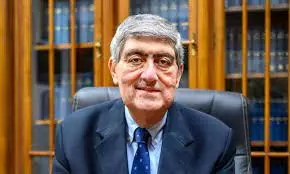
Justice Kaul suggests truth and reconciliation panel to heal wounds
text_fieldsNew Delhi: Justice Sanjay Kishan Kaul, who was on the five-judge bench that delivered its verdict regarding revocation of special privileges of Jammu & Kashmir with the repeal of Article 370 on Monday, and wrote a separate judgement, said that in order to heal the wounds created by human rights violations by both state and non-state actors since the 1980s, a truth and reconciliation panel should be formed.
In his judgement, which concurred with the substantive parts of the bench's verdict regarding the repeal of J & K's special rights, also said that the army which is intended to fight against the enemy countries, is not meant for controlling a state. Kaul, himself a Kashmiri Pandit, referred to his own experience during the troubled times. "During my travels home over the years, I have observed the social fabric waning, and the consequences of inter-generational trauma on an already fractured society."
Justice Kaul bemoaned that the Kashmir valley is bearing the burden of history, as the victims of the post-1947 occupation and going on for decades. It was in 1980s that armed activities started again. This led to the mass migration during 1989-90. The migration from Kashmir was not voluntary, and it was because the integrity and sovereignty of India was in danger.
The entry of military in the valley created its own realities. Justice Kaul also explained that the men, women and children of Kashmir paid a heavy price for the military's attempts to protect the integrity of the country and to defend against foreign incursions.
"In order to move forward, the wounds need healing. What is at stake is not simply preventing the recurrence of injustice, but the burden of restoring the region’s social fabric to what it has historically been based on – coexistence, tolerance and mutual respect."
He pointed out it is worth noting that even the partition of India in 1947 did not impair Jammu & Kashmir’s communal and social harmony.
"In this context, Mahatma Gandhi is famously quoted to have said that Kashmir was a ray of hope for humanity!," he said.
Justice Kaul in his 121-page separate judgement, also cautioned that the country's federal structure should not be disturbed by the revocation of Article 370 of the Constitution, and Kashmiris should be able to enjoy all the freedoms and rights available to peoples of other states.
Justice Khanna, who agreed with the judgements of Chief Justice Chandrachud and Justice Kaul, however remained silent on Justice Kaul's suggestion of appointing a panel.























